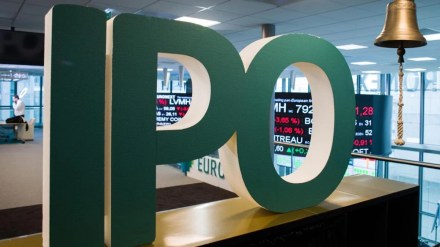Discount brokers handling a majority of initial public offering (IPO) applications want more sponsor banks to ease the pressure on the system emanating from huge interest that these offers are receiving.
Industry sources said informal talks are going on between top discount brokers, stock exchanges, banks and merchant bankers to resolve issues related to technological glitches in the last few months, affecting the investor sentiment.
For example, 1.4 million, or 16%, applications were rejected in the Bajaj Housing Finance IPO, which received a record Rs 3.2 lakh crore in bids and 8.9 million applications. This was the second-largest number of rejections in absolute term after the Life Insurance Corporation of India’s IPO in May 2022.
“If there is a bottleneck at the bank level, the simplest solution that you can think of is to have more banks. Besides, if the process is to be revamped, it will require a more detailed study into what exactly caused the delay and rejection. None of the brokers has exact visibility about this,” a source said.
In case of Bajaj Housing Finance, the majority of rejected applicants were unable to complete the e-mandate via Unified Payments Interface (UPI). Applications sent to the exchanges via platforms such as Zerodha were instantly submitted, but issues cropped up when they were later sent to sponsor banks, market participants said.
The process involves brokers sending orders to the exchanges and the exchanges sending those to sponsor banks. Brokers’ orders need to match with bank account of the applicant.
Bankers, on their part, blame the exchanges. “Exchanges should not list a greater number of IPOs in a single day as it clogs the system due to high traffic, and sometimes they fail to send applications to banks, like it happened with Bajaj Housing Finance,” a banking industry official said.
In recent times, IPOs have had one-two sponsor banks. Brokers said it is for the exchanges, the regulator and issuers to take a decision on increasing the the number of sponsor banks. In Bajaj Housing’s case, brokers blamed sponsor banks Axis Bank and HDFC Bank for non-allotment.
HDFC Bank denied that there was an issue at its end. “There was no technical glitch at HDFC Bank’s end. We can confidently state that no consumer would have been impacted on account of lack of timely fulfilment by the bank. The bank only played the role of a fulfilment partner and was part of the larger ecosystem that managed the IPO on the UPI,” Ramesh Lakshminarayanan, group head – IT and CIO at HDFC Bank, told FE.
A Zerodha spokesperson said, “The complete ecosystem needs to discuss possible changes to improve speed. Stockbrokers and banks cannot independently put this in place. Since stockbrokers are not part of the payments leg, they can only interact with sponsor banks through the stock exchanges, and not directly. Stockbrokers can only submit applications to the stock exchange.”
“Banks and UPI will have to really work towards clearing these glitches. The system has to be fair and open,” said Ashvin Parekh, managing partner at Ashvin Parekh Advisory Services.
He said both Axis Bank and HDFC Bank are equipped to handle large amount of UPI transactions on a daily basis. “The application solution to handle these transactions is robust. However, the application solution managing IPOs is not yet efficient to handle volumes beyond a particular limit, emphasising the issue of scalability,” Parekh said.
